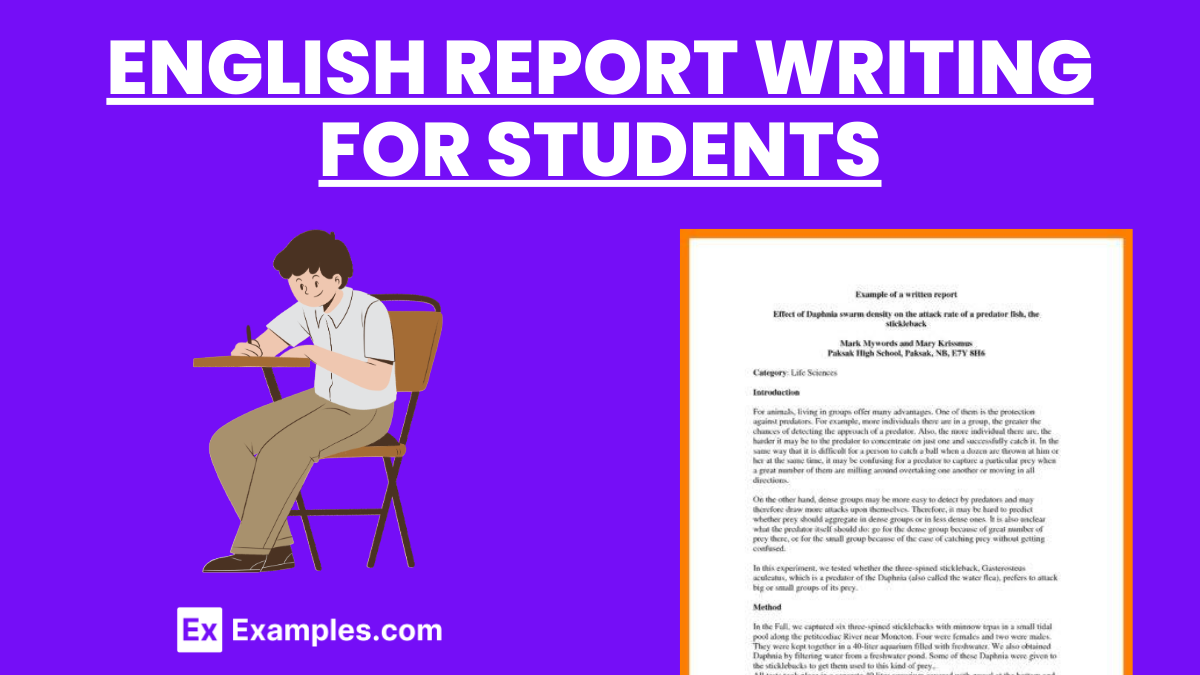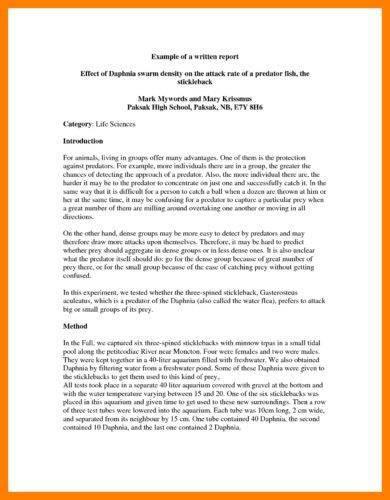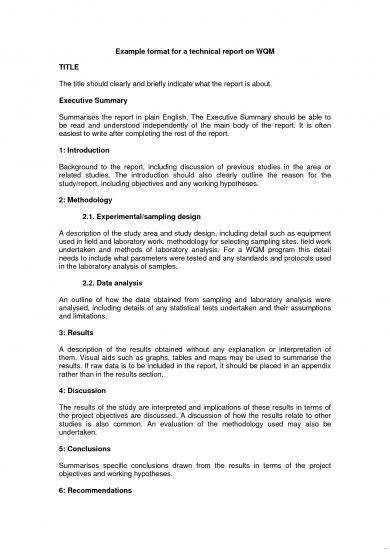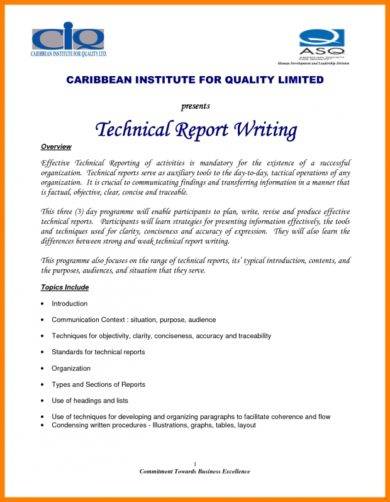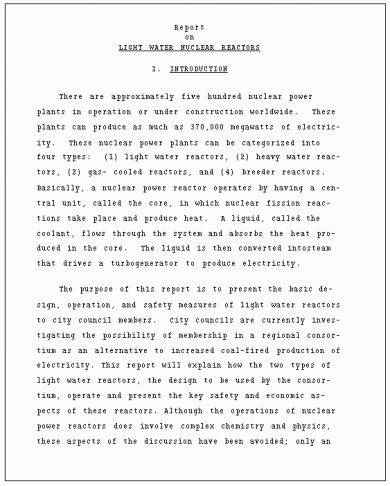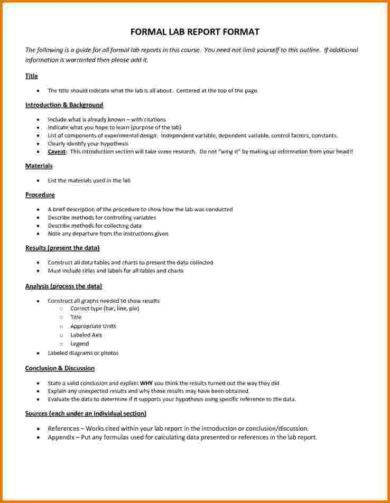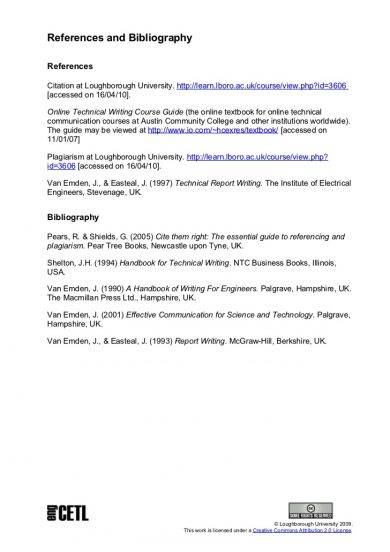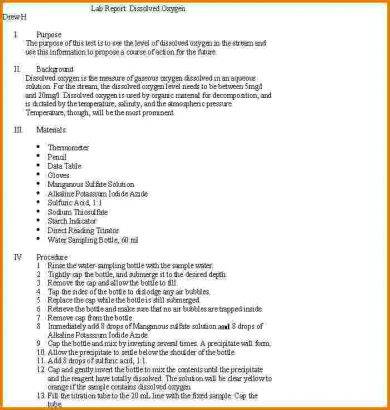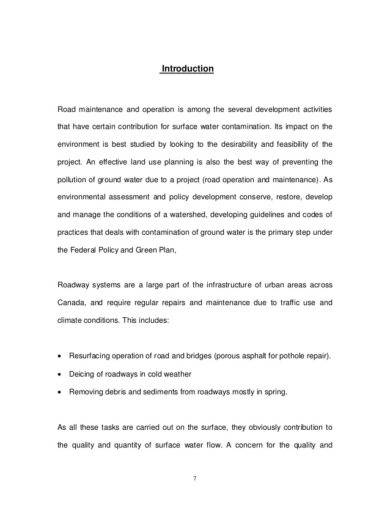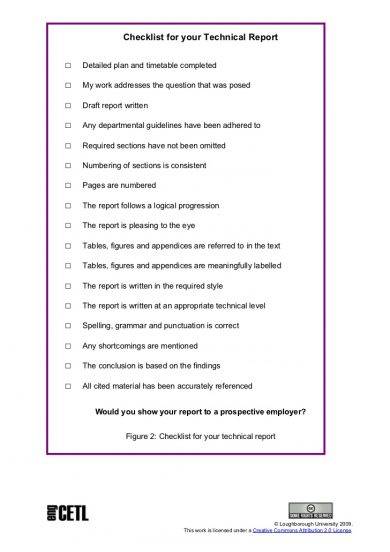29+ English Report Writing for Students Examples to Download
Report writing is a crucial skill for students, particularly when it comes to crafting formal reports, which are essential not only in academics but also in future professional endeavors. It aids in the critical analysis of information, the organization of thoughts, and their clear presentation, thereby enhancing analytical and communication skills. This article aims to offer students a comprehensive guide on English formal report writing, covering everything from understanding assignment objectives to structuring the report and improving writing style. Students can also benefit from ready-made report templates to save time and maintain a professional presentation, ultimately preparing them for success in various fields.
English Report Writing for Students Format
Title Page
- Title of the Report: Should be clear and descriptive.
- Author’s Name: Your full name.
- Submission Date: The date when the report is to be submitted.
- Course Name: The name of the course for which the report is being written.
- Instructor’s Name: The name of your teacher or professor.
Table of Contents
- List all the report sections along with their page numbers for easy navigation.
Introduction
- Purpose of the Report: Briefly describe what the report will cover and its objectives.
- Background Information: Provide any necessary background information relevant to the report.
- Thesis Statement: Present the main idea or argument that will be explored in the report.
Body
- Methodology: Describe the methods used to gather information or conduct research for the report.
- Findings/Data Analysis: Present the data or findings from your research. Use charts, graphs, or tables to illustrate points where appropriate.
- Discussion: Analyze the findings. Discuss how they relate to your thesis statement and what they mean in the broader context of your topic.
Conclusion
- Summarize the key findings and their implications.
- Suggest recommendations based on the report’s findings.
- Reflect on the research process and mention any limitations or areas for further research.
Example of English Report Writing for Students
Title: “The Importance of Recycling”
Introduction:
The introduction provides an overview of the topic and the purpose of the report. It sets the context and engages the reader’s interest.
Recycling is a vital practice in today’s world, and its significance extends beyond just environmental benefits. This report, “The Importance of Recycling,” aims to shed light on the many reasons why recycling is not only an essential aspect of environmental sustainability but also contributes to economic and social well-being.
Body:
The body of the report contains the core content and is divided into sections and subsections, each with clear headings and subheadings. Here’s an example structure:
1. Environmental Benefits:
This section discusses the positive impacts of recycling on the environment.
- Reducing Landfill Waste: Recycling diverts waste from landfills, reducing the burden on these sites and mitigating harmful environmental effects.
- Conservation of Natural Resources: Recycling helps conserve valuable resources, such as trees, water, and minerals, which are used to produce new goods.
- Lower Energy Consumption: Recycling generally requires less energy than manufacturing products from raw materials, thus reducing greenhouse gas emissions.
2. Economic Benefits:
This section explores the economic advantages of recycling.
- Job Creation: Recycling industries create employment opportunities in collection, sorting, and processing of recyclable materials.
- Cost Savings: Businesses and municipalities can save money by reducing waste disposal costs through recycling programs.
- Market Opportunities: Recycling can lead to the development of new markets for recycled products.
3. Social Benefits:
This section delves into the societal advantages of recycling.
- Community Engagement: Recycling initiatives often bring communities together, fostering a sense of responsibility for the environment.
- Educational Opportunities: Recycling programs can educate students and the public about environmental stewardship.
- Health and Well-being: Reducing waste and pollution can lead to improved public health and quality of life.
Conclusion:
The conclusion summarizes the main points and findings from the report.
Recycling is not just about separating trash; it’s a multifaceted practice that has far-reaching positive effects on the environment, economy, and society. Embracing recycling is an essential step toward a more sustainable and responsible future.
Recommendations:
Suggest practical steps or recommendations related to the report’s topic.
- Promote recycling programs at schools, homes, and workplaces to raise awareness and encourage participation.
- Support policies and initiatives that incentivize recycling and sustainable waste management.
English Report Writing for Students Examples & Templates
High School Report Example
Technical Report Example
Technical Report Writing
Report Format Example
Report Writing Example
Formal Lab Report Format
Report References Example
Lab Report Example
Report Introduction Example
Report Writing Checklist
Writing your English report doesn’t have to be burdensome. In fact, it can even be enjoyable. It is an activity that can allow you to brainstorm, to think and to be creative, and to let your knowledge gather and then flow. By following and observing these simple reminders and steps we have discussed, you will make the most out of writing your report and get a grade worthy of your efforts.
Elements That a Report May Contain
Since reports are generally more tedious to make in comparison to essays, they need a proper blend of the right elements to be considered effective in expressing the information on their topic and in persuading the readers to believe its contents.
1. A simple report should contain a sequence of events or situations that may lead to the point that it is trying to prove, or to the evidence it is using to prove a point. As aforementioned, reports are systematic. Which means that, in creating a structure for the writing, the information should be systematized as well. This will create a stronger scaffold for your facts, making them more convincing and more well-structured.
Plus, it can give your readers a sense of direction while they go through your report. An unstructured report is like throwing facts haphazardly. This will not do well with your report’s main objective.
2. There should also be a proper and eloquent interpretation of the said events and situations. Do they come solely from your own analysis or are they the views of other people? It is important to let your readers understand where everything that you are stating is coming from. Of course, you must never forget to quote or reference the people you have gathered your ideas and evidences from. You may also see status report examples.
In fact, the more resources and references, the stronger your claims in your report will be since you can show tangible names of people who can back your claim through their own study.
3. Your report should evaluate the facts you state. There is no point in merely giving out a plethora of facts if you don’t give your readers an idea on how all of those facts interconnect. State every detail and answer every possible question the readers of your report may have about it. By doing this, you can avoid any confusion that your readers may feel after reading your report. You may also like sample activity reports.
Confusion would only mean that they have not been convinced, and not being convinced could only mean that your report was not able to do its job.
4. You should also include recommendations on what to do for future references. By doing this, you are creating a mental picture of a possible future where the facts on your report is usable.
5. Your report should arrive at a conclusion. Otherwise, you will have no ending statement to indicate that you have actually proven something through your basic report. This conclusion will also summarize the important points in your paper that can help in emphasizing them and allowing your readers to comprehend and remember them more easily.
Important Things to Remember
1. Be careful with your grammar and punctuation. Even if you speak your language on a daily basis, having to write using it is a completely different thing. Make sure that after you write your report, you reread it as many times as possible to make sure that you have not committed any grammatical errors or punctuation mistakes. You may also see recruitment report examples.
No matter how good your content and ideas are, your report will still be considered badly written if you don’t effectively state it in a fluent language.
2. Stick with one writing style. Every writer has one, even those who are only writing for academic purposes. Make sure that you maintain this writing style throughout your entire report. And your writing style doesn’t have to be complicated. You may also like financial report examples.
In fact, the simpler it is the better. If you haven’t discovered what your writing style is, just try to read your previous works and study the way you deliver information. This can give you a clear idea on what your writing style is.
3. Don’t use too big words. You are not going to be graded for using words like ebullient or excogitate. This is not a vocabulary exam. What will matter is how you construct your report and how your details are structured. Besides, using big words will not help you make a point. They can only confuse your readers. So use terminologies you are familiar with, those that come naturally to you. You may also check out quality report examples.
Steps in Writing a English Report for Students
1. Know your topic.
Your instructor will give you a clear picture of what he wants you to write about and what he wants your writing to accomplish. Make sure that, before creating your report, you understand what you want to accomplish with it
2. Keep your topic in your mind all the time.
This is important so that you don’t stray from it. Every writer is vulnerable to the possibility of discussing things that are outside and far from the report’s main topic. The best way to avoid this is to always keep a clear idea of what you are writing about and to make sure that the subtopics you include are directly connected to the main topic. This takes us to the third step. You may also see service report examples.
3. Make sure that your subtopics will help you reach your desired conclusion.
Which means that you should avoid discussing things that are not helpful in taking you to the point that your report is trying to make. In fact, your subtopics should help you build your arguments. They should take you forward into writing, not keep you in the same loop with your conclusion far from your reach. You may also like investigation report samples and examples.
4. Make sure that you arrive at your desired conclusion.
The best way to do this is to get a clear picture of what you want to prove in your report and then design every step of your way and every detail that you include in a way that will lead you to where you want to reach.
After you learn your topic, get to know it well by studying it first. Create a list of your findings and try to construct your argument from that.
Research for accurate references and resources that you can quote in your report and, at the same time, can give you ideas on how to go through with your writing. At the end of the day, a good report is all about correct decision-making. Make sure that even the tiniest details you decide on as you write your report will aid you in reaching your conclusion. You may also check out business report examples.
How do you write an English report example?
Table of Contents
- Introduction
- Methodology
- Findings
- Discussion
- Conclusion
- Recommendations
1. Introduction:
In this section, provide background information on the topic, the purpose of the report, and any relevant context.
Online learning has become a prevalent mode of education, especially during the COVID-19 pandemic. This report aims to assess the impact of this transition on student performance.
2. Methodology:
Describe the methods used to collect and analyze data.
We collected data from [X] number of students from [Name of School/Institution] using a combination of academic records, surveys, and student feedback forms. Data was collected for both pre-pandemic and post-pandemic periods.
3. Findings:
Present the results of your research or analysis.
- Academic Performance: Student GPAs increased by an average of 5% in the online learning period compared to traditional in-person classes.
- Student Feedback: 85% of students reported that they found online learning equally or more effective than traditional methods.
- Survey Responses: The majority of students indicated that online learning provided more flexibility and reduced commuting time, positively impacting their overall learning experience.
4. Discussion:
Analyze and interpret the findings.
The increase in GPA suggests that online learning may have advantages over traditional methods. However, it is important to consider factors like student motivation, access to resources, and teaching quality that may have contributed to this change.
5. Conclusion:
Summarize the main points and offer your insights.
Online learning has shown promise in enhancing student performance, but it is not without challenges. Institutions should continue to explore ways to improve the online learning experience, focusing on factors that contribute to its effectiveness.
6. Recommendations:
Provide suggestions for future actions or areas of further research.
- Schools should invest in training educators for effective online teaching.
- More research is needed to understand the long-term effects of online learning on students’ social and emotional development.
How to Start a Report Writing for Students?
Starting a report effectively is crucial as it sets the tone, provides context, and engages your readers. Here’s a general guide on how to start a report:
1. Begin with a Clear Title:
Your report title should succinctly convey the main topic or subject matter.
2. Write an Informative Cover Page (if applicable):
Include the report title, your name, the date, and any relevant organizational information.
3. Provide an Executive Summary (if applicable):
Start with a brief executive summary that highlights the main findings, conclusions, and recommendations. This is typically a condensed version of the entire report and is useful for readers who want a quick overview.
4. Begin the Introduction:
The introduction is the first section of your report and serves as a roadmap for your readers.
5. Elements of an Effective Introduction:
- Hook or Attention-Grabber: – Start with a hook to capture the reader’s interest. It could be a surprising fact, a relevant quote, a compelling statistic, or a thought-provoking question.
- General Background: – Provide some background information about the topic. Explain why it is important or relevant.
- Specific Focus: – Clearly state the purpose of the report and what it aims to achieve.
- Scope and Methodology: – Briefly outline the scope of the report, including the boundaries or limitations of your research or analysis. Mention the methods you used to gather data or conduct your research.
- Roadmap: – Give the reader a brief overview of what they can expect in the report. Mention the key sections or chapters and how they are organized.
How to Improve English Report Writing for Students?
Improving your English report writing skills is a valuable asset for academic, professional, and personal communication. Here are some tips to help you enhance your report writing abilities:
1. Understand the Purpose: First and foremost, understand the purpose of your report. Is it to inform, persuade, analyze, or recommend? Knowing your objective will guide your writing.
2. Know Your Audience: Consider who will be reading your report. Tailor your language, tone, and content to suit the needs and expectations of your audience.
3, Plan and Organize:
- Create an outline: Outline the key sections and subsections of your report. This will help you maintain a logical flow.
- Arrange your points: Ensure a clear and logical progression of ideas. Each section should build upon the previous one.
- Use headings and subheadings: Organize your report into sections with descriptive headings to aid readability.
4. Start with a Strong Introduction:
- Begin with an engaging hook to capture the reader’s interest.
- Provide context and background information.
- Clearly state the purpose, scope, and objectives of your report.
5. Use Clear and Concise Language:
- Avoid jargon or overly technical terms unless your audience is familiar with them.
- Write in clear, straightforward language. Be concise and avoid unnecessary words.
Improving your English report writing is an ongoing process that involves practice, feedback, and a commitment to clarity and effective communication. Over time, your skills will develop, and you’ll become a more proficient and confident report writer.


